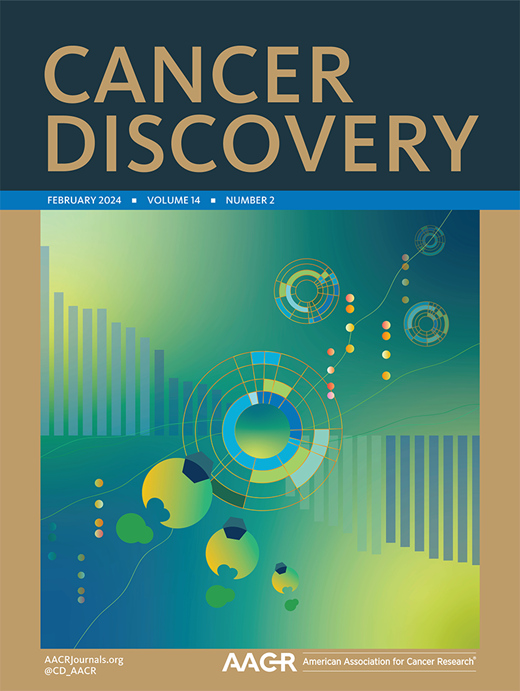癌变的本质和培养。
IF 29.7
1区 医学
Q1 ONCOLOGY
引用次数: 0
摘要
在这期杂志中,Li和他的同事描述了小鼠两阶段模型中伴随皮肤癌发生的突变变化。他们证明,尽管诱变剂诱导的数千个突变可以持续几乎一生,但诱变剂诱导的起始必须遵循非诱变促进,这可能会改变组织景观,介导恶性表型的克隆选择。参见李等人的相关文章,第1115页。本文章由计算机程序翻译,如有差异,请以英文原文为准。
The Nature and Nurture of Carcinogenesis.
In this issue, Li and colleagues characterize the mutational changes that accompany skin carcinogenesis in the two-stage model in mice. They demonstrate that, despite inducing thousands of mutations that can persist for almost a lifetime, mutagen-induced initiation must be followed by non-mutagenic promotion, which presumably alters tissue landscapes to mediate clonal selection for malignant phenotypes. See related article by Li et al., p. 1115.
求助全文
通过发布文献求助,成功后即可免费获取论文全文。
去求助
来源期刊

Cancer discovery
ONCOLOGY-
CiteScore
22.90
自引率
1.40%
发文量
838
审稿时长
6-12 weeks
期刊介绍:
Cancer Discovery publishes high-impact, peer-reviewed articles detailing significant advances in both research and clinical trials. Serving as a premier cancer information resource, the journal also features Review Articles, Perspectives, Commentaries, News stories, and Research Watch summaries to keep readers abreast of the latest findings in the field. Covering a wide range of topics, from laboratory research to clinical trials and epidemiologic studies, Cancer Discovery spans the entire spectrum of cancer research and medicine.
 求助内容:
求助内容: 应助结果提醒方式:
应助结果提醒方式:


